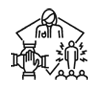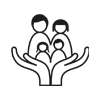Partial Hospitalization Program
Partial Hospitalization Program (PHP) is a type of Outpatient Treatment Program that caters to individuals with substance use disorder, mental health disorder, or co-occurring disorder who are in search for an environment that provides structure, accountability, and community. Individuals in this program receive individualized treatment services and addressing their psychiatric needs, all while staying in the comfort of their own homes or supportive housing. PHP is used by individuals that require intense treatment but have their own supported living environment thereby they do not require 24/7 Residential Care.
- Individual Therapy
- Group Therapy
- Family Sessions
- Experimental Groups (Yoga,Acupuncture, Breathworks)
- Mindfulness-based Relapse Prevention
- Cognitive Behavioral Therapy
- Dialectical Behavioral Therapy
- Medication Assistance






